I can't install anything new I need to use the default python library and I have to integrate a function. I can get the value for any f(x) and I need to integrate from 0 to 6 for my function f(x).
-
To avoid the question being closed without being answered, please refer to [How to Ask](http://stackoverflow.com/help/how-to-ask) – Dec 06 '16 at 01:05
3 Answers
In discrete form, integration is just summation, i.e.
where n is the number of samples. If we let b-a/n be dx (the 'width' of our sample) then we can write this in python as such:
def integrate(f, a, b, dx=0.1):
i = a
s = 0
while i <= b:
s += f(i)*dx
i += dx
return s
Note that we make use of higher-order functions here. Specifically, f is a function that is passed to integrate. a, b are our bounds and dx is 1/10 by default. This allows us to apply our new integration function to any function we wish, like so:
# the linear function, y = x
def linear(x):
return x
integrate(linear, 1, 6) // output: 17.85
# or using lamdba function we can write it directly in the argument
# here is the quadratic function, y=x^2
integrate(lambda x: x**2, 0, 10) // output: 338.35
- 800
- 7
- 20
You can use quadpy (out of my zoo of packages):
import numpy
import quadpy
def f(x):
return numpy.sin(x) - x
val, err = quadpy.quad(f, 0.0, 6.0)
print(val)
-17.96017028290743
- 53,797
- 27
- 201
- 249
def func():
print "F(x) = 2x + 3"
x = int(raw_input('Enter an integer value for x: '))
Fx = 2 * x + 3
return Fx
print func()
using the input function in python, you can randomly enter any number you want and get the function or if hard coding this this necessary you can use a for loop and append the numbers to a list for example
def func2():
print "F(x) = 2x + 3"
x = []
for numbers in range(1,7):
x.append(numbers)
upd = 0
for i in x:
Fx = 2 * x[upd] + 3
upd +=1
print Fx
print func2()
EDIT: if you would like the numbers to start counting from 0 set the first value in range to 0 instead of 1
- 23
- 2
-
-
-
You evaluated the function over the range [1,6]; the poster needs the integral over the range [0,6]. I don't see anywhere that you've dealt with the definite integral of a given function. See the earlier answer for a good presentation. – Prune Dec 06 '16 at 02:01
